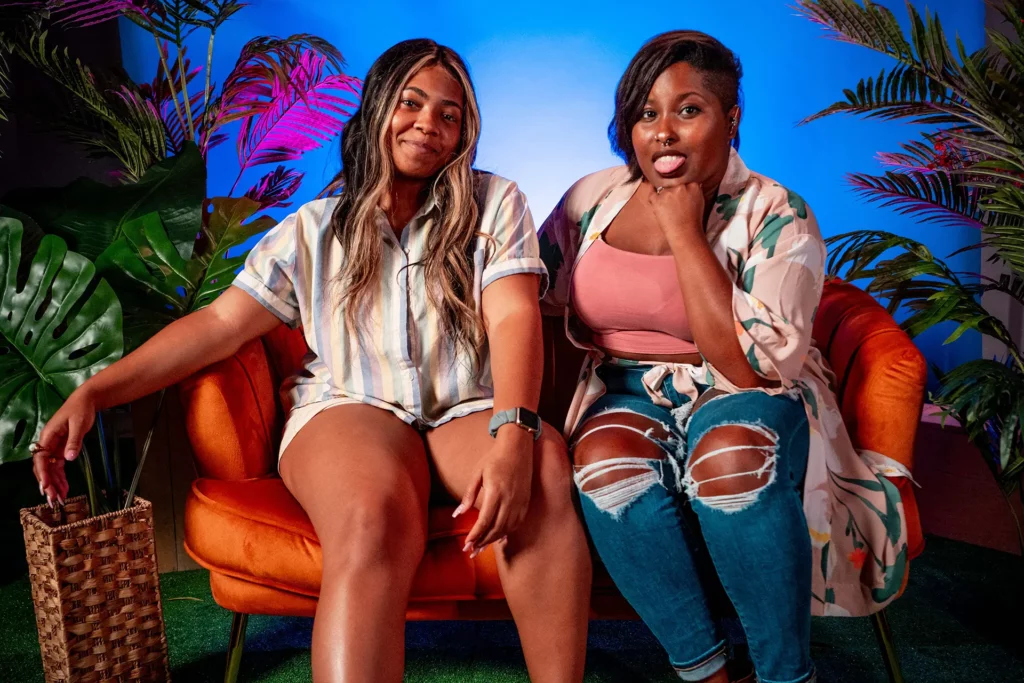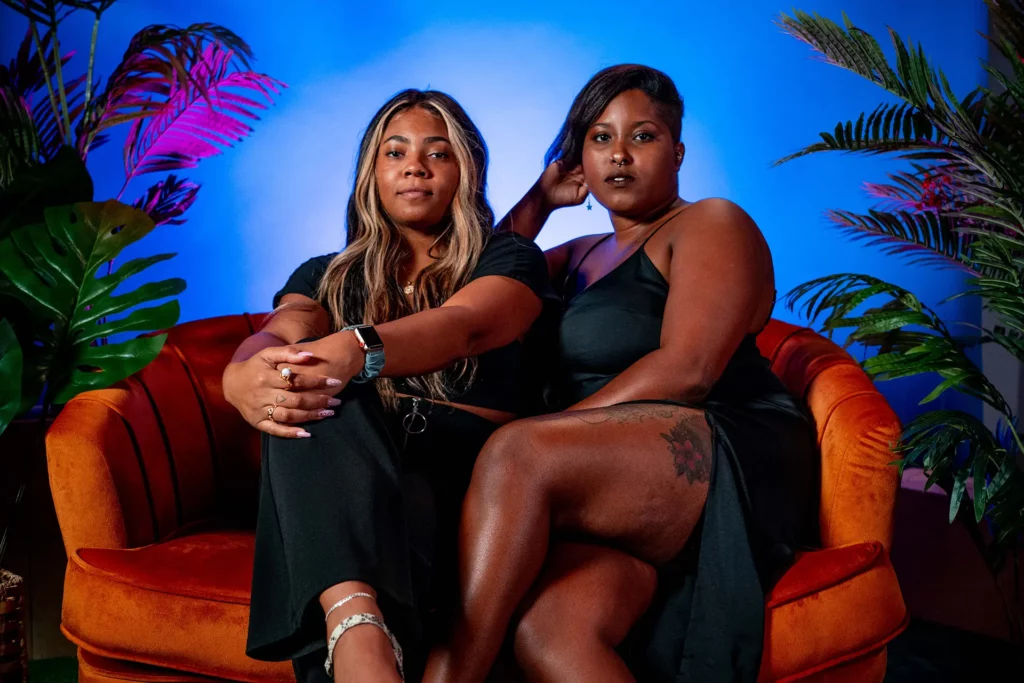Ava DuVernay, award-winning director, said, “Ignore the glass ceiling and do your work. If you’re focusing on the glass ceiling, focusing on what you don’t have, focusing on the limitations, then you will be limited. My way was to work, make my short… make my documentary… make my small films… use my own money… raise money myself… and stay shooting and focused on each project.”
In writing this blog, I wanted to include statistics for black women working as crew in the film industry. To my surprise (and I suppose I shouldn’t be that surprised) there weren’t many reputable studies that focused on Black Women. Rather, studies focused on black people or women. But like Ava said, we won’t let that draw limit us. We will keep shooting.
At ECG, representation is an ongoing goal. While we are proud of our gender diversity, we consistently strive to be more culturally and ethnically diverse. In that, it’s more than necessary to highlight two members of our team who live in their unique experiences as black women in this industry.
“Ava Duverny. She was one of the first five people, not just black, but one of the first five people that I saw and her story specifically as a black woman. It made me think ‘yea, okay, I can do this’. Representation matters, having people around you matters,” SiSi Porch, Producer and Wardrobe Supervisor.
“Before I came to ECG, I was working at a civil and human rights focused non-profit and I was surrounded by black women. That was the first time in my career that I was able to work with that many black women and it was truly an unmatched experience. I just appreciated being able to share my experience with people who faced similar situations–it’s so rare to find and I’ll carry it with me as I continue to try to make space for everyone to be represented in their own right,” Jasmine Waters, Associate Producer and Writer.

Representation Matters
Films like Black Panther, Get Out, and the upcoming live-action remake of The Little Mermaid are reminders of how important it is to have representation in the film industry. However, SiSi and Jasmine said it’s just as important for that representation to be behind the scenes as it is on the big screen. Black Women have been finding ways to make space for themselves in a predominately white, male-dominated industry for a long time. There is something special about getting the opportunity to work on projects that showcase black people and their experiences.
“One of my first projects with ECG, I had the pleasure of interviewing Teneshia Carr, owner and editor of Blanc Magazine. Her story was so inspiring, because she legitimately created a magazine that works with large brands after not getting the opportunity over and over again. After her interview, I knew it was important to talk to the client about how important certain parts of her story were, and why they shouldn’t be removed even though some folx may be uncomfortable. They agreed and I was just so damn proud to advocate for her and ensure that her whole story was heard,” Jasmine.
SiSi also recounted an opportunity to work on a predominantly black project, “It was crazy to get an opportunity like this straight out of college, I was glad to work with our sister company, the Populace Group, on Hello My Name Is. I’ve gotten to talk to a lot of artists and their managers, and their people, and it really makes their souls happy that there’s something for them like this.
Like it’s our show, it’s not Tiny Desk, it’s not Jimmy Fallon, it’s Hello My Name Is and it’s for black up-and-coming artists. It’s for them to talk about who they are as people, it’s such a cool opportunity that we got as a company, but more so as black people.”
It’s beautiful to create representation intentionally. When you think about casting, when someone’s skin-color isn’t specified, that shouldn’t default to white. These two black women ensure that they’re intentional in all the positions they hold at ECG.
Where Diversity and Opportunity Meet
“The first script that I got to write for ECG, I wrote in a black woman with natural hair. In writing it, as I’m one of our only black women writers on the team, I let everyone know that they were going to have to do the shots of her hiding her hair and having it down in the opposite order to what it was written as to not mess up her hair when it’s supposed to be down. I appreciate that I could add that story in and provide support for the actor so she wouldn’t have to feel spotlit if people were confused about how hair works,” Jasmine.
“I was wardrobe that day, and when I saw her and her hair texture I went to the director to ensure we’d built in time to put her hair up successfully. So often black women’s hair gets overlooked, so I wanted to make sure that didn’t happen with us. Everyone was super supportive and we made sure she looked her best the whole time. It’s so important that we learn more about each other’s experiences and have that support on set to ensure no one is getting glossed over,” SiSI.
There is something greatly fulfilling about having spaces made for people of color and getting to work within those spaces. However, when you’re in it there are still struggles to overcome and boundaries that you have to push past.
“As a black woman in this industry, because there’s not a lot of us, it feels like I should get as much exposure as possible. It’s only going to put me in a better position. And you know, we always have to work twice as hard,” SiSi.
The Legacy of Black Women in Film
In an interview with Shondaland, Emmy Award winning writer Quinta Brunson said, “I wanted to embrace taking every day as it comes and allowing myself to really turn into the woman I’m supposed to be, and that’s not as simple as a couple of sentences. I think it’s bigger than that and deeper than that. And it’s especially important for Black women because there are enough rules on how we get to exist. We put them on ourselves, other people put them on us, and I really don’t want to live that way. I want to do whatever I want and be whoever I want to be.”
“We as black women have been so conditioned to take up less space, or we’ll piss people off. Talk with a soft voice, or people will think we’re aggressive. Or even in my high school which was a PWI, I was told to listen to less rock–which originated from black people–or I wouldn’t be black enough. It took me so long to unlearn these limiting rules, and I want to share what I’ve learned through my work,” Jasmine.
At the 2015 Emmys, Viola Davis became the first black woman to win the award for Outstanding Lead Actress in a Drama Series and she said, “The only thing that separates women of color from anyone else is opportunity. You cannot win an Emmy for roles that are simply not there.”
Black women like Viola Davis have been more vocal about the issues with the industry, and while it seems like they are heard, it doesn’t always feel like everyone is listening. There has been a slow progression of black women being given space in mainstream media, but they continue to persevere. For example, Quinta Brunson laid the foundation with Abbott Elementary, allowing longtime powerhouse Sheryl Lee Ralph to win her first Emmy. And the black ladies of our Producer Team are no different.
Looking Ahead
SiSi noted her dreams for the future and how she plans to be as successful as the women who’ve paved the way before her, “I want to move to LA in ten years and work in producing horror films. And eventually I would want to focus on directing. I enjoy bringing people together and being that person.”
“I want to write black stories that aren’t just about trauma. Don’t get me wrong, as someone who’s worked in history museums, those stories need to be told too, but they shouldn’t be the only story shared about black people. We are not a monolith by any means, and I want to write comedic scripts that show black people and other diverse groups in the same ways that we’ve seen white sitcoms.”
These women are excited to continue their work not just with ECG, but also within their communities to make sure everyone is seen and can see themselves.


One Response
This is a great article, keep believing in yourself and keep pushing for greatness.